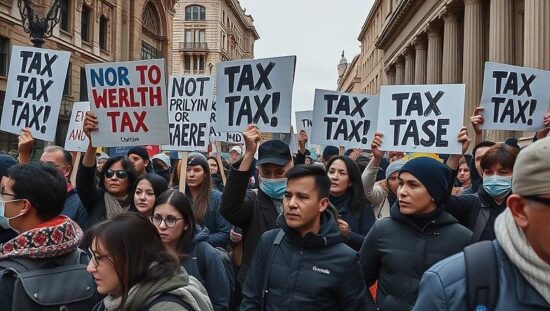Christian Benner, the head of the IG Metall, is calling for a wealth tax in the tax debate. “We need to have those who have a lot contribute more to the financing of the public good. One way would be to introduce a wealth tax for the richest one percent, who own a third of the wealth in Germany” said Benner to the “Rheinische Post” (Wednesday). “I know wealthy individuals who would also be willing to contribute more.”
At least, the top tax rate should be increased: “I don’t understand why we had a top tax rate of 53 percent under Helmut Kohl, while it is now at 42 percent and for the wealthy at 45 percent. We should raise the top tax rate and reduce the burden on middle incomes” said Benner further. “If we lower the corporate tax for capital companies, we will need a counter-financing anyway.”
In the debate over the minimum wage, the head of the IG Metall is calling for the determination of the minimum wage commission to be handed over. “It is the task of the minimum wage commission to determine the amount. There should be agreement through mutual consent” said Benner to the “Rheinische Post”. “We should strengthen the tariff autonomy.”
Benner said further: “I am sure that the commission will make the right decision. It has to take into account not only the development of wages, but also EU guidelines, which stipulate that the minimum wage should amount to 60 percent of the average income, precisely the median wage. That would be about 15 euros.” The IG Metall chief warned: “And we can also ask: Is a 15 euro hourly wage enough for a dignified life?”
SPD General Secretary Matthias Miersch had threatened to intervene in the determination of the minimum wage.
At the same time, the IG Metall head warned the new coalition against replacing the daily maximum working hours with a weekly limit: “For people who work on shifts, we need the daily maximum working hours of ten hours. Otherwise, employers will make them work longer shifts to save on travel and accommodation costs. Without the daily maximum working hours, employees could face shifts of three times 13 hours a week. The Labor Code and our collective agreements already provide sufficient flexibility” said Benner.





